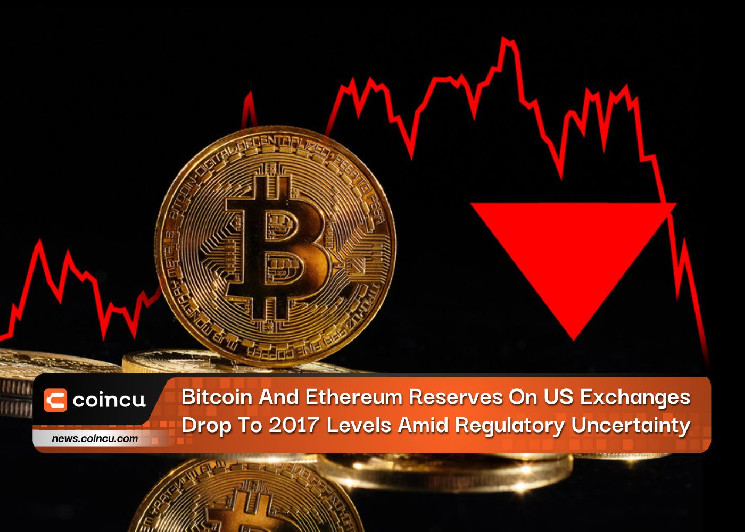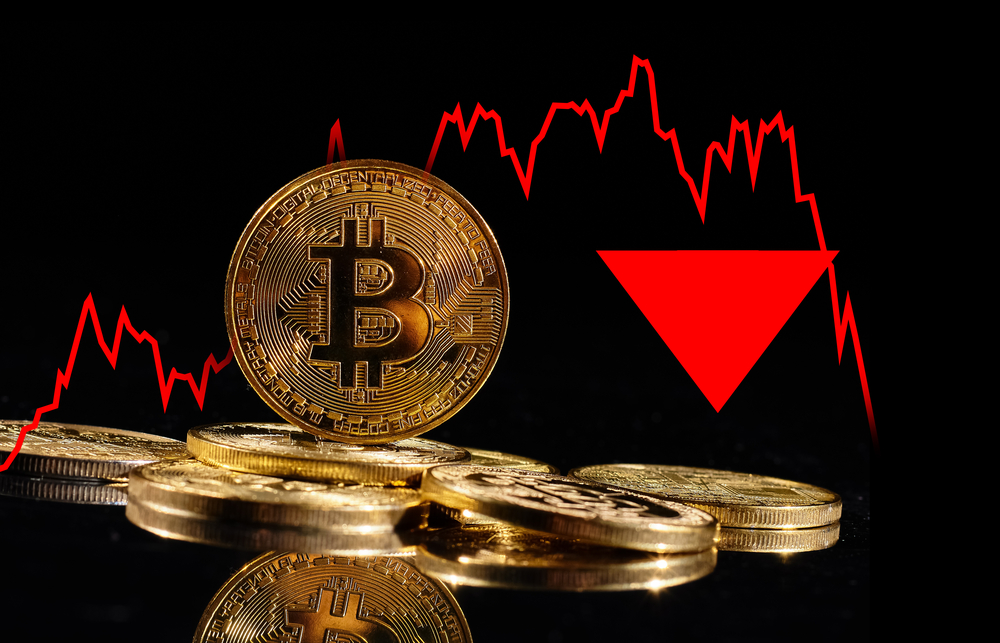Bitcoin And Ethereum Reserves On US Exchanges Drop To 2017 Levels Amid Regulatory Uncertainty

The international exchanges are experiencing an influx of capital, talent, and digital asset companies, indicating a shift in the global crypto landscape. Furthermore, the market capitalization of US stablecoins has plummeted, while the US retains its dominance in Bitcoin mining, despite potential challenges from regulation and taxation.
Over 50% of Bitcoin and 56% of Ethereum held on US exchanges have been transferred outside the country, reducing Bitcoin reserves to 2017 levels. Regulatory uncertainties are believed to be the driving force behind this shift, with investors seeking more favorable jurisdictions.
International crypto exchanges now trade four times more volume than their US counterparts, attracting capital, talent, and digital asset companies. Regions like the European Union and Hong Kong are becoming attractive destinations for cryptocurrency activities.

US-based stablecoins have experienced a 35% decline in market capitalization, representing a loss of $15 billion in 2023. This decline may be linked to regulatory concerns and increased adoption of non-US alternatives.
Despite challenges in other areas, the US remains a dominant player in the global Bitcoin mining industry. However, there are concerns that this position could be compromised due to inadequate regulation and potential tax implications imposed on miners.
Regulatory uncertainty in the US has resulted in a significant decline in Bitcoin and Ethereum reserves on domestic exchanges. International exchanges are capitalizing on this situation, attracting more trading volume and market participants. The US stablecoin market has also witnessed a decline, while the country’s dominance in Bitcoin mining remains intact for now. However, regulatory challenges and potential tax policies could impact the US crypto market’s future growth and competitiveness.
DISCLAIMER: The Information on this website is provided as general market commentary and does not constitute investment advice. We encourage you to do your own research before investing.






 Bitcoin
Bitcoin  Ethereum
Ethereum  Tether
Tether  USDC
USDC  TRON
TRON  Dogecoin
Dogecoin  Cardano
Cardano  Bitcoin Cash
Bitcoin Cash  Monero
Monero  Chainlink
Chainlink  LEO Token
LEO Token  Stellar
Stellar  Zcash
Zcash  Litecoin
Litecoin  Hedera
Hedera  Dai
Dai  Cronos
Cronos  OKB
OKB  Tether Gold
Tether Gold  Ethereum Classic
Ethereum Classic  KuCoin
KuCoin  Cosmos Hub
Cosmos Hub  Gate
Gate  Algorand
Algorand  VeChain
VeChain  Dash
Dash  Stacks
Stacks  Tezos
Tezos  TrueUSD
TrueUSD  IOTA
IOTA  Decred
Decred  Theta Network
Theta Network  Basic Attention
Basic Attention  NEO
NEO  Synthetix
Synthetix  Qtum
Qtum  0x Protocol
0x Protocol  Ravencoin
Ravencoin  Zilliqa
Zilliqa  DigiByte
DigiByte  Nano
Nano  Siacoin
Siacoin  Numeraire
Numeraire  Waves
Waves  Enjin Coin
Enjin Coin  Ontology
Ontology  Status
Status  Hive
Hive  BUSD
BUSD  Lisk
Lisk  Pax Dollar
Pax Dollar  Steem
Steem  Huobi
Huobi  OMG Network
OMG Network  Bitcoin Gold
Bitcoin Gold  NEM
NEM  Augur
Augur